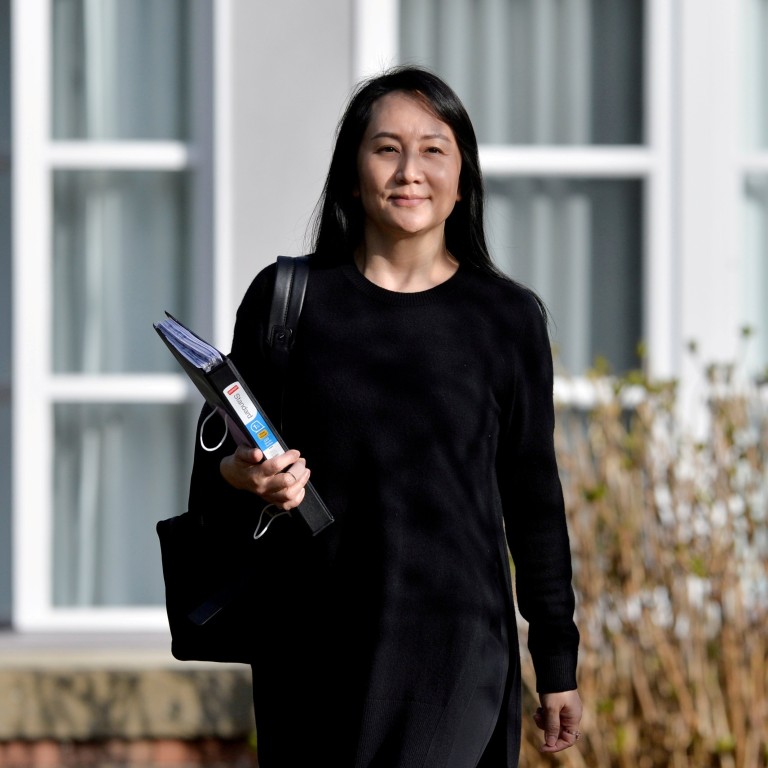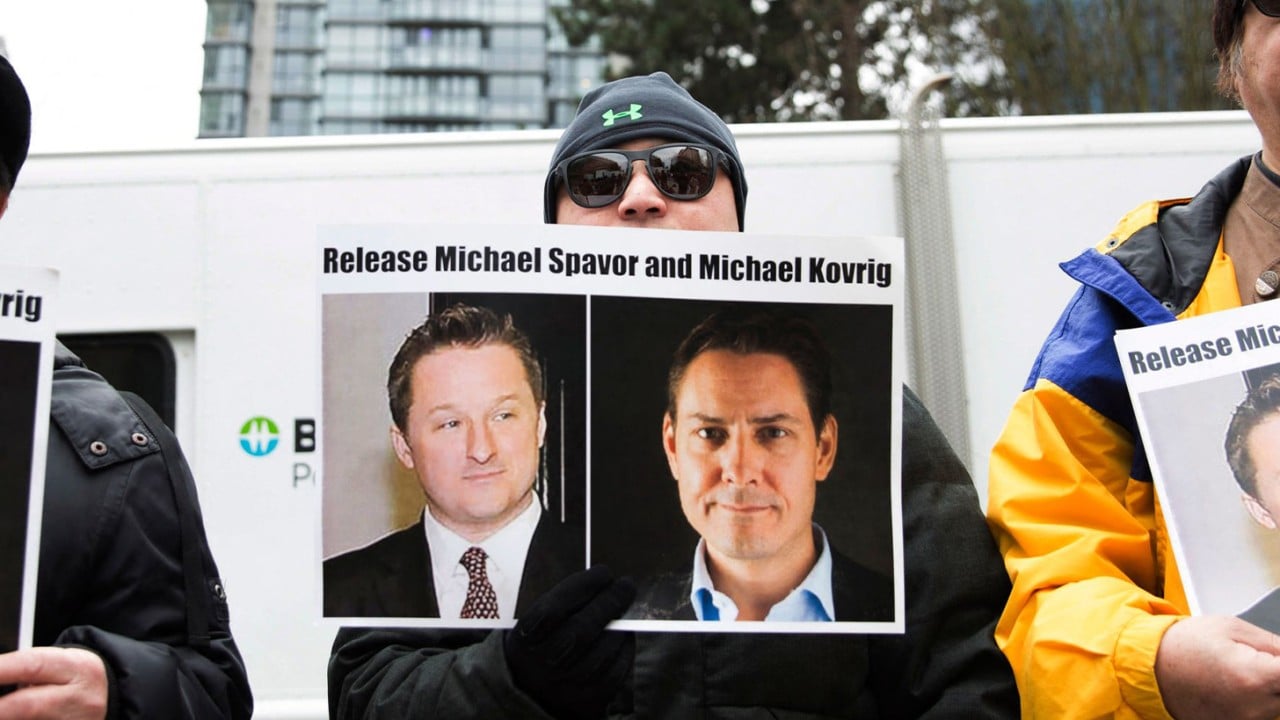
Meng Wanzhou is ‘contractually bound’ to try to keep HSBC evidence secret in extradition case, lawyers say
- The Huawei executive’s lawyers say bank documents should be withheld from public view to encourage HSBC to take part in the Canadian court proceedings
- But lawyers for the Canadian government and a media consortium say that a proposed publication ban would breach Canada’s open-court principles
Lawyers for Huawei Technologies executive Meng Wanzhou have told a Canadian court that she is “contractually bound” to seek a publication ban on evidence in her extradition case that has been provided by HSBC, to protect the bank’s privacy and encourage it to take part in the court proceedings.
But lawyers from the Canadian government and a consortium of media outlets, including the South China Morning Post, told the Supreme Court of British Columbia in Vancouver on Monday that imposing a publication ban on the material was inconsistent with Canada’s open court principles and it should be denied.
The documents were provided to Meng under the terms of an April agreement with HSBC, as a result of a Hong Kong lawsuit.
Path remains murky for Meng Wanzhou’s marathon extradition battle, after HSBC evidence triggers delays
Meng, who is Huawei’s chief financial officer, was arrested at Vancouver’s airport on December 1, 2018, at the request of US authorities who want her extradited to face trial in New York. She is accused of defrauding HSBC by lying about Huawei’s business dealings in Iran, putting the bank at risk of breaching US sanctions on the country; Meng denies the charges.
In a written submission, Meng’s lawyers said the deal “requires the Applicant to seek a publication ban when seeking to tender the disclosure as evidence in these proceedings”. The agreement required Meng to “use reasonable efforts” to keep the information confidential.
Lawyer Tony Paisana told the hearing that Meng was “contractually bound” by the deal to try to protect the HSBC documents’ confidentiality.
However, he told Associate Chief Justice Heather Holmes that Meng was not prohibited from using the documents, should a publication ban be denied, as long as she made reasonable efforts to obtain one.

The exact nature of the material has not been described, but Meng’s lawyers hope it will bolster their case that she is the victim of an abuse of process and her extradition should be rejected.
Paisana said the evidence “speaks to the requesting state’s theories in a direct way”.
Canadian government lawyer John Gibb-Carsley, representing US interests in the case, said that a publication ban would breach the “fundamental principle” of Canadian justice that its court processes be open.
In its written submission, the government side said that instead of a ban on the material, personal information about HSBC employees could be redacted, in accordance with a media protocol already in place for the case.
“The Applicant has provided no evidence that any harm would result from the publication of the information contained in the HSBC Materials,” the submission said.
Huawei has not violated a court order by sharing information with Meng Wanzhou, says US judge
Gibb-Carsley said “the only reason” that Meng’s lawyers had requested a publication ban was to meet the “reasonable efforts” requirement of the deal with HSBC, and the consent order for the agreement issued by the High Court of Hong Kong.
The Hong Kong court had anticipated that a publication ban might not be applicable in Canada, and the consent order would not be breached if Holmes did not impose the ban.
Daniel Coles, a lawyer for a media consortium that includes the Post, The New York Times, the Canadian Broadcasting Corporation and other outlets, told the court that a publication ban would serve no broad public interest and infringed on the open court principle.
Coles cited a ruling issued on Friday by the Supreme Court of Canada, in which it rejected a request for a sealing order on court documents that had been sought by the estate of Barry and Honey Sherman, a wealthy couple found dead in their Toronto home in December 2017.
Meng’s application for a publication ban failed to satisfy a three-point test newly established by the Sherman case, said Coles; namely, that the ban serve an important public interest, that it be necessary to prevent serious risk to the parties and that the benefits of the ban outweigh its negative effects.
Audio problems rendered much of Monday’s hearing inaudible to reporters listening in by phone, including comments from Holmes before she adjourned the hearing.
Coles, who attended the hearing, said that Holmes had reserved judgment.
Meng’s arrest and her marathon extradition case have upended China’s relations with Canada and the US. Two Canadians, Michael Spavor and Michael Kovrig, were arrested in China and put on trial for espionage, in what Ottawa calls a case of arbitrary detention.


